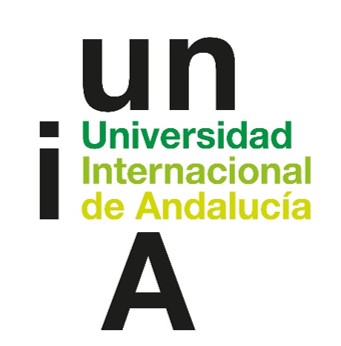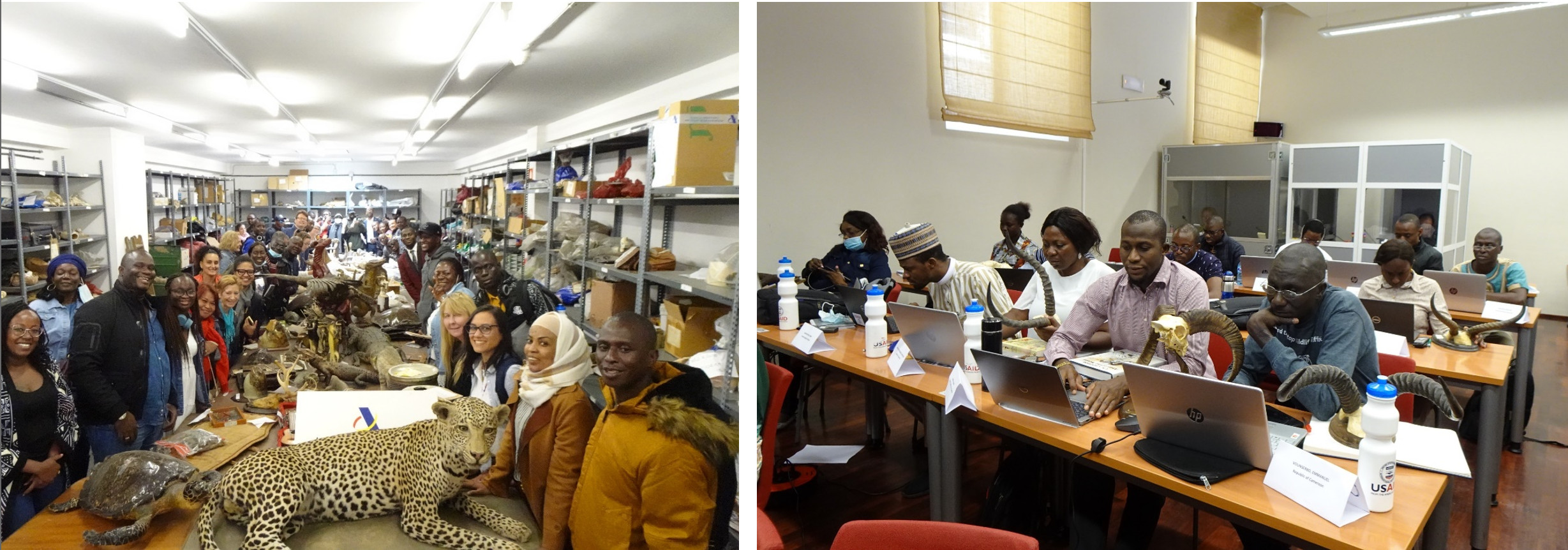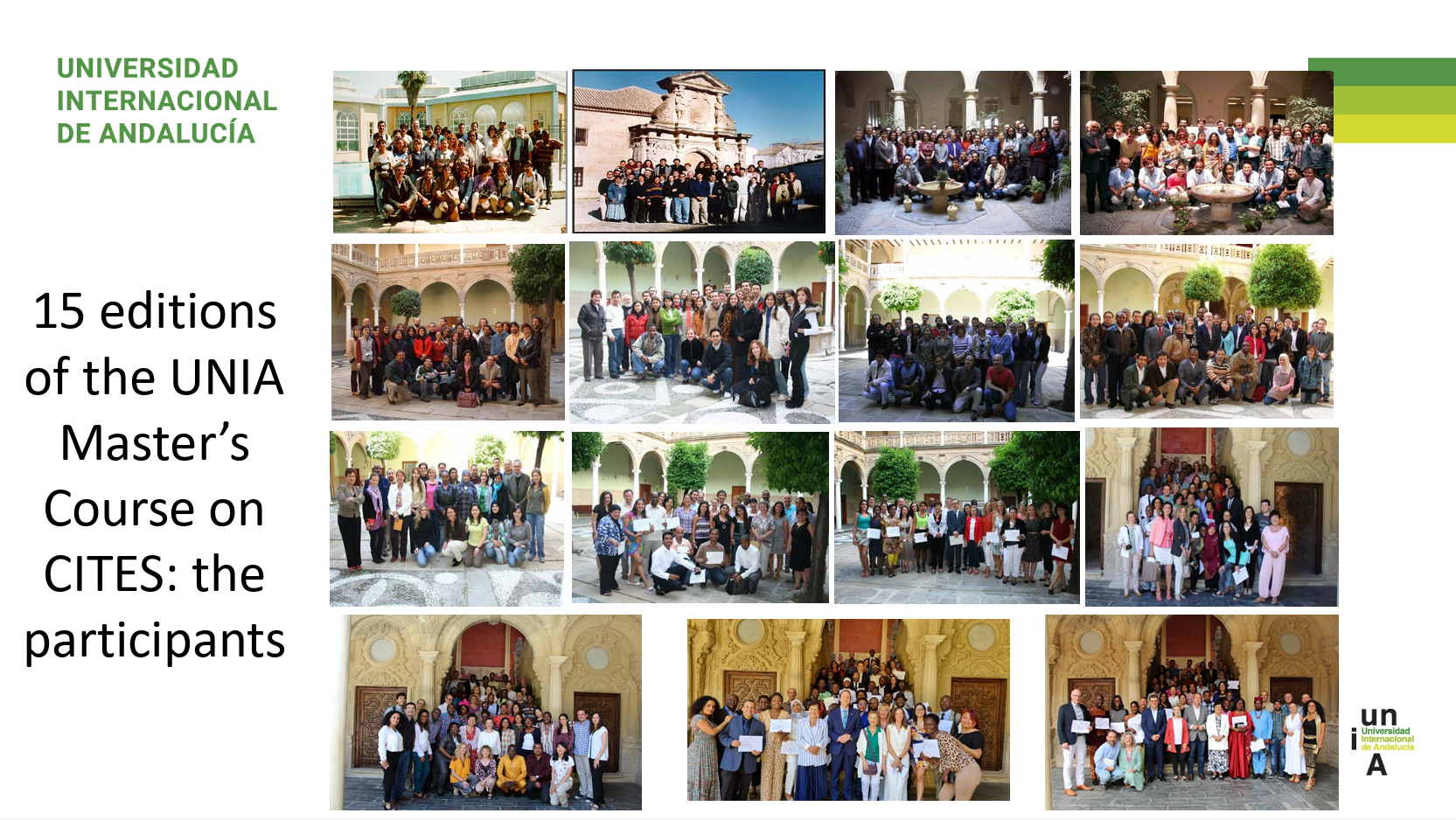
![]() Par ‘renforcement des capacités’ on entend généralement le développement d’activités et de matériel soutenant l’acquisition de connaissances et compétences particulières pour mieux comprendre et appliquer les dispositions de la Convention.
Par ‘renforcement des capacités’ on entend généralement le développement d’activités et de matériel soutenant l’acquisition de connaissances et compétences particulières pour mieux comprendre et appliquer les dispositions de la Convention.
Résolutions et Décisions
- Résolution Conf. 3.4 Coopération technique
- Dec. 18.39-18.46 Renforcement des capacités
Documents du Comité
- SC70 Doc.22.1 Besoins de renforcement des capacités des pays en développement et des pays à l’économie en transition: Rapport du Secrétariat
- SC70 Doc. 22.2 Proposition de cadre pour faciliter la coordination, la transparence et la responsabilité s’agissant des efforts de renforcement des capacités déployés par la CITES (soumis par les États-Unis d'Amérique)
- voir également - SC70 Inf.2
Possibilités actuelles de renforcement des capacités
- Cours de maîtrise de l’UNIA – date limite 30 oct (préinscription), 16 déc 2021 (inscription)
- UK IWT Challenge Fund, Round 8 – date limite 22 nov. 2021
Ressources et possibilités d’aide au renforcement des capacités
- Fonds pour l’environnement mondial (FEM) Global Wildlife Program : programme s’attaquant au commerce illégal des espèces sauvages en Asie et Afrique. Plus de 30 projets FEM sont inclus dans le FEM-6 et FEM-7.
- Le Fonds pour l’éléphant d’Afrique (AEF) : fonds abondé par plusieurs donateurs dont la mission est d’orienter les ressources vers une application efficace du Plan d’action pour l’éléphant d’Afrique (Résolution Conf. 16.9). Le PNUE fournit les services de secrétariat au comité directeur de l’AEF.
- États-Unis : U.S. Fish and Wildlife Services grant opportunities
- Université Internationale d’Andalousie (UNIA) : Master’s Course in Management and Conservation of Species in Trade: the International Framework
- Université du Kent, Durrell Institute of Conservation and Ecology (DICE) : MSc in Conservation and International Wildlife Trade
International University of Andalucía (UNIA) Master’s Degree in Management and Conservation of Species in Trade

Organized by the International University of Andalucía (UNIA), the UNIA Master's Degree in Management and Conservation of Species in Trade. The International Framework has been running since 1998 and has provided specialized quality training on the concepts, scientific bases, techniques and instruments that enable CITES implementation to hundreds of participants from over 100 countries. Many of the course participants are CITES authority officials.
The course, held every two years, consists of an on-campus period of 11 weeks in Baeza, Spain, followed by a research period of 9 months leading to the submission of a master’s thesis. The successful completion leads to the attainment of 60 ECTS (European Credit Transfer and Accumulation System) credits and the Master’s Degree issued by UNIA, a public university in Spain.

Important dates regarding the 15th edition of the Master’s course:
- Publication of course information through Notification to Parties: mid-2025
- Pre-registration: 4 May-31 October 2025
- Formal enrolment: 15 November-16 December 2025
- On-campus period: 13 April-28 June 2026
- Virtual period: 1 February-1 September 2026
Subject to the availability of external funds, the CITES Secretariat provides limited financial support to interested CITES officials from developing country Parties. Other financial support is available from the West Africa Biodiversity and Low Emissions Development program (USAID WABiLED) for participants from West Africa.
Commemorative book "Master CITES: A success story of the Spanish cooperation (2019)"
